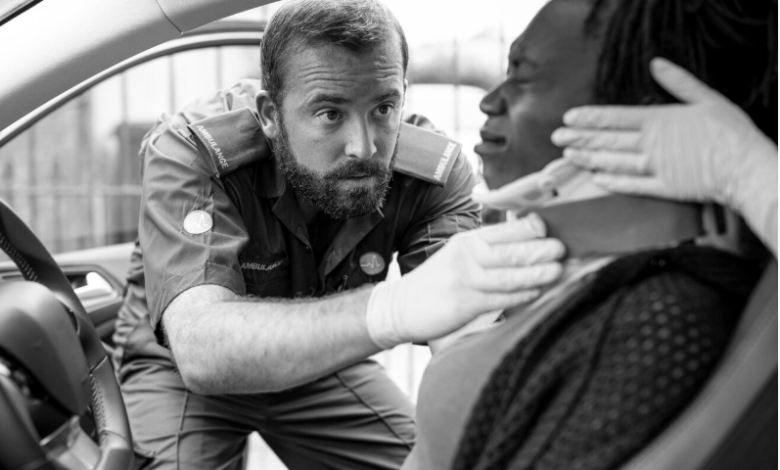Car Accidents and Wrongful Death: Legal Options for Families

Understanding Wrongful Death in Car Accidents
Defining Wrongful Death
So, what exactly is “Wrongful Death“? It happens when someone dies because of someone else’s carelessness or intentional actions. Think of it as a death that could have been avoided if not for someone else’s mistake. It’s a heavy topic, but it’s important to understand the basics. A lawsuit might help cover expenses like funeral costs, lost income, medical bills, and the emotional pain that comes with such a loss.
Key Elements of a Wrongful Death Claim
To have a valid claim, a few things need to be true. First, the death must be a direct result of someone’s negligence or intentional act – like reckless driving. Second, the family needs to have suffered real damages, like lost financial support or companionship. And third, someone needs to be appointed to represent the deceased person’s interests in court. It’s not always simple, but these are the core pieces.
Common Causes of Wrongful Death in Car Crashes
Car accidents are unfortunately, a common cause of wrongful death claims. These deaths often stem from a driver’s negligence. Here are some examples:
- Drunk driving
- Distracted driving (texting, etc.)
- Speeding
- Running red lights
- Ignoring traffic laws
It’s important to remember that each case is unique, and the specific circumstances of the accident will play a big role in determining whether a wrongful death claim is viable. If someone’s actions behind the wheel directly lead to a fatality, there’s a good chance a claim can be made.
Legal Options for Families After a Fatal Car Accident
After a fatal car crash, families often feel lost and unsure of what steps to take next. While nothing can truly replace a loved one, understanding your legal options is important. A Car Accident Claim can help provide financial support and hold responsible parties accountable.
Initiating a Wrongful Death Lawsuit
The most common way to seek compensation is by starting a wrongful death lawsuit. This is a civil action, separate from any criminal proceedings. While a criminal case focuses on punishing the wrongdoer, a wrongful death lawsuit aims to provide financial relief to the surviving family members. It’s about getting some measure of justice and help during a difficult time.
Navigating the Civil Court Process
The civil court process can seem complex and intimidating, but it’s important to understand the basic steps involved. Here’s a simplified overview:
- Filing a Complaint: This is the initial document that starts the lawsuit, outlining the facts of the case and the damages sought.
- Discovery: This involves gathering evidence through interrogatories (written questions), depositions (oral examinations), and document requests.
- Motion Practice: Attorneys may file motions to resolve legal issues or challenge evidence.
- Trial: If a settlement cannot be reached, the case will proceed to trial, where a judge or jury will decide the outcome.
It’s easy to feel overwhelmed by the legal jargon and procedures. Remember, you don’t have to go through this alone. An attorney can guide you through each step and advocate for your rights.
Seeking Accountability for Negligent Drivers
One of the primary goals of a wrongful death lawsuit is to hold negligent drivers accountable for their actions. This means proving that the driver’s carelessness or recklessness caused the accident and the resulting death. Common examples of negligence include:
- Driving under the influence of alcohol or drugs
- Speeding or reckless driving
- Distracted driving (e.g., texting while driving)
- Violation of traffic laws
Successfully proving negligence is key to winning a wrongful death case. It sends a message that such behavior will not be tolerated and helps prevent future tragedies.
Who Can File a Wrongful Death Claim?
It’s a really tough time, and figuring out who even can file a wrongful death claim is probably the last thing you want to deal with. But it’s important. Basically, it comes down to state laws, and they decide who’s eligible based on their relationship to the person who died. The goal is to make sure the people most affected can actually seek some kind of compensation.
Identifying Eligible Family Members
Usually, it’s the immediate family who can file a claim. This almost always includes the spouse, children (biological or adopted), and parents. But it can get more complicated than that. Some states also allow other relatives to file, especially if they were financially dependent on the deceased. Think about it – if someone was relying on the deceased for support, their life is seriously impacted, and the law tries to recognize that.
The Role of a Personal Representative
Okay, so what happens if the person who died had a will? Or even if they didn’t? Well, a personal representative (sometimes called an executor) often steps in. This person is appointed by the court to manage the deceased’s estate. Sometimes, the personal representative is the one who actually files the wrongful death lawsuit, but they do it on behalf of the eligible family members. It’s like they’re the point person for the legal stuff.
Understanding Beneficiary Rights
So, who actually gets the money if a wrongful death lawsuit is successful? That’s where beneficiaries come in. These are the people who are legally entitled to receive the compensation. State laws usually have a specific order of who gets priority. It might be the spouse first, then the children, then maybe the parents. It really depends on the state and the specific circumstances. It’s worth noting that the money isn’t just “free money.” It’s meant to cover things like lost income, medical bills, and funeral expenses. It can also include compensation for the emotional pain and suffering the family has gone through.
It’s important to remember that every state has its own rules about who can file a wrongful death claim and who can be a beneficiary. This is why talking to a lawyer is so important. They can look at your specific situation and tell you exactly what your rights are.
Damages Recoverable in Wrongful Death Cases
When someone dies because of another person’s negligence, the family can pursue a wrongful death claim. This isn’t just about getting money; it’s about holding the responsible party accountable and helping the family cope with the financial and emotional fallout. Figuring out what damages can be recovered is a big part of this process.
Compensation for Financial Losses
Financial losses, often called economic damages, are the easiest to put a number on. These are the tangible costs that the family incurs because of the death. Think of it as trying to replace the financial support the deceased would have provided.
Here’s a breakdown:
- Lost Earnings: This is a big one. It includes not just what the person was earning at the time of death, but also what they were likely to earn in the future. This calculation considers their age, job, skills, and potential for raises or promotions. It can get pretty complex, often involving expert testimony from economists.
- Medical Expenses: If the person had medical bills before they died because of the accident, those can be recovered. This includes ambulance rides, hospital stays, surgeries, and medication.
- Funeral and Burial Costs: Funerals are expensive. The cost of the funeral service, the casket, the burial plot, and other related expenses can all be included in the claim.
- Loss of Benefits: Many jobs come with benefits like health insurance, life insurance, and retirement plans. The loss of these benefits can also be included in the financial losses.
Addressing Non-Economic Damages
Non-economic damages are harder to quantify because they deal with things that don’t have a direct dollar value. These are about the emotional and personal losses the family experiences.
- Loss of Companionship: This refers to the loss of the relationship with the deceased. It includes things like love, affection, comfort, and moral support. It’s about the void left in the family’s life.
- Pain and Suffering: This is about the emotional distress the family experiences because of the death. It can include grief, sorrow, anxiety, and mental anguish. It’s a recognition that the death has caused significant emotional harm.
- Loss of Guidance and Support: If the deceased provided guidance, training, or education to family members, the loss of that can also be compensated. This is especially relevant if the deceased was a parent.
Calculating the Value of a Claim
Putting a dollar amount on these damages is tricky. There’s no simple formula. It often involves looking at similar cases, considering the specific circumstances of the family, and negotiating with the insurance company or presenting evidence in court.
It’s important to remember that every case is different. The value of a wrongful death claim depends on many factors, including the age of the deceased, their earning potential, the nature of the relationship with their family, and the laws of the state where the accident occurred. An experienced attorney can help assess the value of a claim and fight for fair compensation.
Ultimately, the goal is to provide the family with the resources they need to move forward after a devastating loss. While money can’t bring back a loved one, it can help ease the financial burden and provide a sense of justice.
The Importance of Legal Representation
Dealing with the aftermath of a fatal car accident is incredibly tough. On top of the emotional pain, families often face a confusing legal landscape. That’s where a lawyer comes in. It’s easy to feel lost, but having someone on your side who knows the ropes can make a huge difference.
Why Hire a Wrongful Death Attorney?
Losing a loved one is devastating, and the legal process can feel overwhelming. A wrongful death attorney can provide invaluable support and guidance during this difficult time. They handle the legal complexities, allowing you to focus on grieving and healing. Think of it this way: you wouldn’t try to fix your car engine without knowing anything about cars, right? The law is the same way.
- They understand the specific laws in your state.
- They can explain your rights and options clearly.
- They act as a buffer between you and the insurance companies.
It’s not just about the money; it’s about getting justice for your loved one and holding the responsible parties accountable. A lawyer can help you navigate this process with compassion and determination.
Expertise in Gathering Evidence
Building a strong case requires solid evidence. This isn’t just about police reports; it’s about digging deeper. A skilled attorney knows how to gather all the necessary information to support your claim. This might include:
- Reviewing accident reports and medical records.
- Interviewing witnesses.
- Consulting with accident reconstruction experts.
They know what to look for and how to present it in a way that strengthens your case. Without this kind of investigation, it’s easy to miss crucial details that could impact the outcome.
Negotiating with Insurance Companies
Insurance companies aren’t always on your side. They often try to minimize payouts, which can leave families feeling shortchanged. An attorney acts as your advocate, negotiating with the insurance company to get a fair settlement. They understand the tactics insurance companies use and know how to counter them. They can assess the full value of your claim, including:
- Medical expenses
- Lost income
- Pain and suffering
Having someone who knows how to negotiate effectively can make a huge difference in the amount of compensation you receive. It levels the playing field and ensures your rights are protected.
The Wrongful Death Lawsuit Process
Okay, so you’re thinking about filing a wrongful death lawsuit. It’s a tough decision, and the process can seem overwhelming. Let’s break it down a bit.
Investigation and Evidence Collection
First things first, there’s a lot of digging involved. This initial phase is all about building a strong case. Think of it like this: you’re a detective trying to piece together what happened. This means gathering police reports, medical records, witness statements, and any other relevant information about the accident. Sometimes, it even involves hiring accident reconstruction experts to analyze the scene and figure out exactly what went wrong. It’s a detailed process, but it’s super important for proving negligence.
Filing the Lawsuit and Discovery
Once you’ve got a solid base of evidence, it’s time to officially file the lawsuit with the court. This starts the legal clock ticking. After that, we move into what’s called the “discovery” phase. This is where both sides get to ask questions and request documents from each other. It can involve things like:
- Interrogatories (written questions)
- Depositions (oral testimonies under oath)
- Requests for production of documents
It can feel like a lot, but it’s all about getting as much information as possible before going to trial. It helps to reveal the strengths and weaknesses of each side’s case.
Settlement Negotiations and Trial
Most wrongful death cases actually settle before they ever see the inside of a courtroom. After the discovery phase, both sides usually try to negotiate a settlement. This involves back-and-forth discussions, offers, and counteroffers. The goal is to reach an agreement that fairly compensates the family for their losses. If a settlement can’t be reached, then the case goes to trial. Trials can be stressful and time-consuming, but they’re sometimes necessary to get justice for the deceased and their loved ones.
It’s important to remember that every case is different, and the specific steps involved can vary depending on the circumstances. Having a good attorney by your side can make a huge difference in navigating this process and ensuring that your rights are protected.
Statute of Limitations for Wrongful Death Claims
Understanding Time Limits for Filing
Okay, so, when we’re talking about wrongful death claims, there’s this thing called the statute of limitations. Basically, it’s a deadline. You only have a certain amount of time to file a lawsuit after someone dies. This isn’t something you can put off forever. Each state has its own rules about how long you get, but it’s usually somewhere between one and three years from the date of death. Miss that deadline, and you could lose your chance to get any compensation. It’s really important to know the specific rules for your state, so you don’t accidentally miss out.
Exceptions to the Statute of Limitations
Now, things aren’t always super straightforward. There are some exceptions to these time limits. For example, if the person who died was a minor, the clock might not start ticking until they turn 18. Or, if it took a while to figure out that the death was caused by someone’s negligence, there might be some wiggle room. It’s also possible that if the responsible party left the state, the clock could pause until they return. These exceptions can be complicated, so it’s always best to talk to a lawyer to see if any of them apply to your situation.
The Concept of Tolling in Wrongful Death Cases
Tolling is a fancy legal term that basically means pausing or delaying the statute of limitations. There are a few situations where tolling might come into play. One common example is when the person responsible for the death is hiding or can’t be found. In that case, the clock stops until they’re located. Another situation is if the deceased person’s estate is still being sorted out. The court might pause the statute of limitations until a personal representative is appointed. It’s important to remember that tolling is not automatic. You usually have to ask the court to grant it, and you’ll need a good reason why the deadline should be extended.
Figuring out the statute of limitations can be tricky, especially when you’re dealing with the emotional aftermath of losing someone. Don’t try to navigate this alone. A lawyer can help you understand the rules and make sure you don’t miss any important deadlines.
Frequently Asked Questions
What does “wrongful death” mean in a car accident?
Wrongful death in a car accident means someone died because another driver was careless or did something wrong. It’s not just a sad accident; it’s a death that could have been avoided if the other person had acted responsibly.
Who can file a wrongful death claim after a car crash?
Usually, close family members like a spouse, children, or parents can file a claim. Sometimes, a personal representative for the deceased person’s estate handles it.
What kind of money can families get in a wrongful death case?
You can ask for money to cover things like funeral costs, medical bills before death, lost income the person would have earned, and even for the emotional pain and suffering the family goes through.
Why do I need a lawyer for a wrongful death claim?
It’s very important to get a lawyer who knows about wrongful death cases. They can help you gather proof, deal with insurance companies, and make sure you follow all the legal rules to get the best outcome for your family.
What happens during a wrongful death lawsuit?
The process usually starts with an investigation and collecting evidence. Then, a lawsuit is filed, and both sides exchange information. Many cases settle out of court, but some go to trial.
Is there a time limit to file a wrongful death claim?
Yes, there’s a time limit, called a statute of limitations, for filing these claims. It’s different in each state, so it’s crucial to talk to a lawyer quickly to make sure you don’t miss the deadline.



